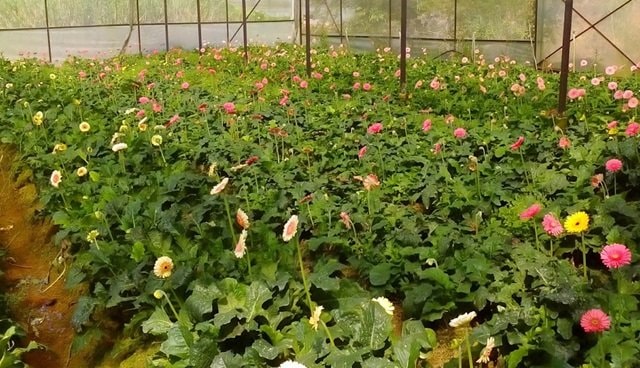Stumbling blocks in agricultural startups
Learning from the mistakes of those who have gone before can help young entrepreneurs avoid unnecessary failures. Here are three stories...
 |
| Illustration photo |
1. Tran Cuong and his 9X friends decided to enter the clean agricultural products business - products that are not sprayed with chemicals or pesticides. In August 2015, after a period of preparation, they launched an application that helps customers order clean vegetables via smartphone.
The project received investment. The marketing campaign was launched with gifts of organic vegetables and fruits shipped from Da Lat to Ho Chi Minh City for those who downloaded the application first. But, just a short time later, the business stopped, the project ended. The reason: you accidentally discovered that the person in charge of the supply, a person you knew and trusted, did not provide clean agricultural products as promised. And as the project founder shared, you had to stop because you could not deceive consumers, could not let it affect your reputation.
It is necessary to look at your background to understand the story. Among the project founders, only one of you had experience starting a business but in the field of delivery. You are knowledgeable about technology but lack knowledge about agriculture, especially organic agriculture. With beautiful dreams, eagerness about the prospect of bringing clean products to consumers but lacking knowledge and experience, you soon believed the person in charge of supply when this person took you to a tomato garden cultivated using the organic method that they implemented. "He talked very well about organic agricultural products, about his experience and acquaintances with gardeners, plus the fact that we saw what he did in the tomato garden, we were convinced, believing that he could provide many other types of organic products without checking", Tran Cuong shared.
The key point for Cuong is to trust without checking because as Cuong said, it is difficult to cooperate without trusting each other. It is true that cooperation without trusting each other is difficult, but if you cannot build a transparent mechanism to check and bind interests to build and maintain trust, then trust is just "thinking to trust".
2. Finding a source of clean agricultural products is difficult, but maintaining the philosophy of clean agricultural products is much more difficult. Imagine your group is in the business of clean agricultural products. The brand, let's call it ABC even though this is a true story, has been built. Loyal customers are already there. However, the company is still unstable, sometimes profitable, sometimes losing. Some founding members begin to waver in their faith. Suddenly, a customer, exactly a row, comes to order a large quantity, not necessarily clean in the sense of not spraying chemicals.
The products can be purchased at wholesale markets as long as the price and delivery are guaranteed, on time. Accept this offer or not? The views of the founders have begun to clash. The first opinion is that we should accept orders because everything is easy; buy and sell, the profit is immediately visible. This is very important in the context of the company's financial difficulties. The argument given by this group is that we still sell clean agricultural products to customers at the store and still sell normal orders to the big customer just now. Everything is clear. Everything is agreed upon and we are not cheating anyone.
The second opinion objected because they thought that by accepting this order, the group would not be able to maintain the business philosophy as originally set out. This group thought that the customer from the restaurant was buying their clean brand, not their product. Imagine the situation where the customer - a secondary group of customers - comes to the restaurant and sees vegetables from ABC store specializing in clean agricultural products.
What happens? Obviously, we do not intend to deceive secondary customers but it is very possible that they have been deceived. Both sides have two opinions. Right or wrong? Should or should not? They cannot find a common voice and the breakup is obvious. Think about this challenge if you are determined to follow the path of clean agricultural business.
3. In a recent organic agriculture seminar in Ho Chi Minh City, a business introduced that they raise and supply organic pork, chicken... with certification from an organization from Japan. However, the two words "organic" mean organic in their thinking, not according to the standards of any certification body. And even the organization from Japan admitted via email exchange with TBKTSG Online that they do not have the authority to issue organic certification. The certification they issue is only a green certification for products raised using their technology. So, there is a lack of clarity for consumers here. Your product may be very good, but transparency is necessary. Since not everyone knows about Japanese certification, let's take a similar example for easy comparison. Suppose that your product is GlobalGAP certified, but GlobalGAP is GlobalGAP, even if it is safe, it is completely different from organic certification.
Let's not consider the consumer's perspective for now. Think about your competitors. When you are vague about your product information, it will be a loophole that your competitors will exploit. Currently, you still have a good position in the market and do not have many competitors. However, please do not be subjective. Do what you can, say that. In business, transparency is always appreciated....
According to Vietnam Agriculture
| RELATED NEWS |
|---|

.jpg)
